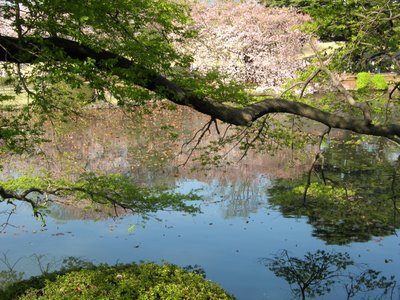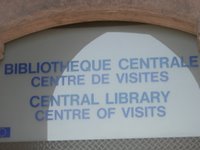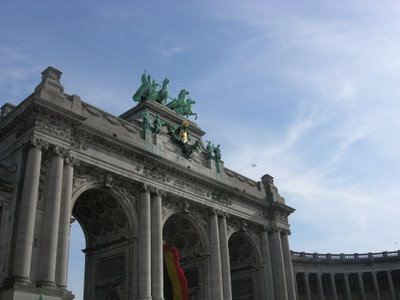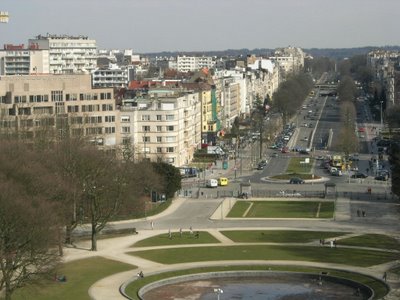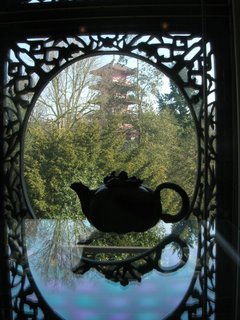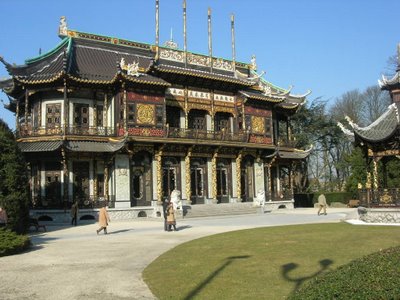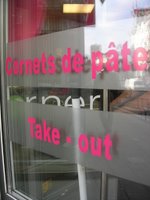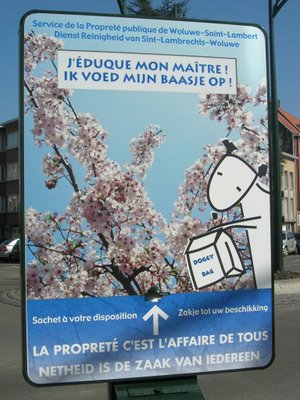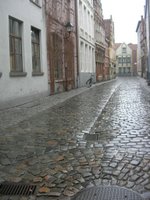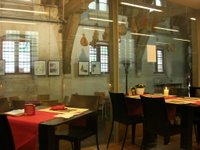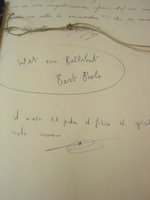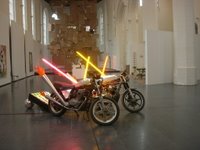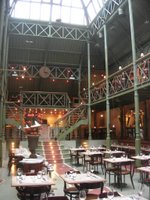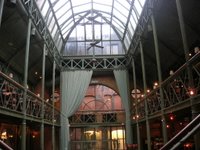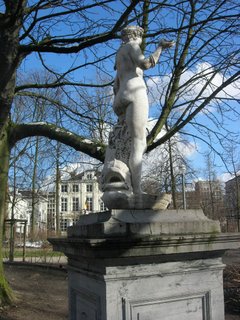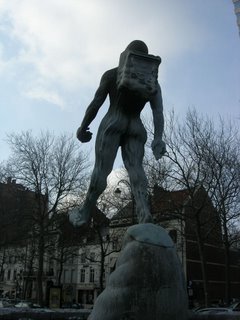Just finished Donna Leon's latest offering, called "Through a Glass Darkly", which I note seems to have come out here in Belgium before either the UK or US release date. It's competent, though not the best I have ever read, but this time I was paying particular attention to her use of Italian, since an Italian friend - who has only read Donna Leon's books in French - quibbles that she misuses Italian in her books.
For the record, the Italian words and expressions she uses to convey the setting, in this case not only as regards Italy/ Venice/police work but specifically the Venetian glass industry, are as follows (not counting placenames like Piazzale Roma, Riva degli Schiavoni, or words that are used in English like grappa, prosecco, panino, peperoncino, cappuccino):
- personal titles like Signore, Signorina, Signora, Commissario, Signor Commissario, Vice-Questore, Professore, Professoressa, Dottore;
- titles of Italian police/judicial institutions/offices: Questura, Carabinieri, Polizia Munizipale, maresciallo, medico legale;
- titles of publications like Gazzettino, Espresso, La Repubblica, Gazzetta Ufficiale, Corriere, La Gazzetta dello Sport; also Dante's Inferno, Purgatorio; - title of newspaper article: "Porto Marghera: Situazione e Prospettive"; Quote from Dante: "L'acqua era buia più che persa".
- a number of largely single words: denuncia, maestro/maestri, fornace/fornaci, telefonino/telefonini, dottori, sottotetto, calle, palazzo/palazzi, riva, pescheria, miscela, servente/serventi, vu cumprà, armadio, remengo, preside, l'uomo di notte, un'ombra/ombre, abuso d'ufficio, Veneziano stretto, laguna, nonna, vongole, rombo, coda di rospo, patate bollite, grissini, garzon/garzoni, schiuma, gingerino, tutto normale, (sala di/) rianimazione, forno di lavoro, piazze, canna, banco, molatura, embarcadero, caffè coretto, acqua minerale non gassata, gettate, in nero, vetreria/vetrerie, donnaiolo, idraulici, vittoria, vittima, vendetta, gondoliere.
- the odd word or phrase in direct address: "Mi scusi, Dottore", "Ciao, Papà", "Buon giorno", "Complimenti", "Sì", "Pronto"; interjections: Gesù Bambino, Maria Vergine, Maria santissima.
- several discussions/reflections on the use of "tu" and "Lei".
- a couple of sentences in Venetian: "More, xe beo, xe propio beo"... "e xe beo, me puteo?" (meaning something like, "isn't he beautiful, my boy?".
Now, DL may over-use some of these words and phrases for local colour, but I think they are all correctly used in this particular book. There is nothing like the incorrect use of what is supposed to be someone's mother tongue to interfere with your belief in the character and indeed the whole world the novelist is trying to conjure up!
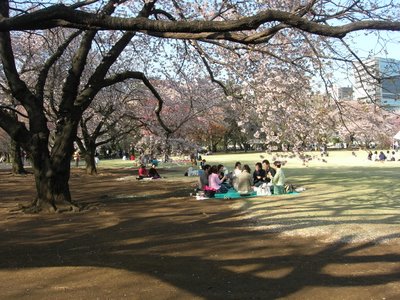
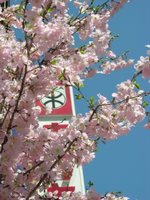 Miki's blog and that of a friend in Seoul currently visiting Kyoto (OK, that is about plum blossom!) have made me nostalgic for Japan at cherry blossom time. There used to be cherry trees in front of the Berlaymont but they disappeared in the renovations, and I have yet to go and see whether the ones in Boitsfort are still there. So, here are some of last year's pictures from Tokyo instead.
Miki's blog and that of a friend in Seoul currently visiting Kyoto (OK, that is about plum blossom!) have made me nostalgic for Japan at cherry blossom time. There used to be cherry trees in front of the Berlaymont but they disappeared in the renovations, and I have yet to go and see whether the ones in Boitsfort are still there. So, here are some of last year's pictures from Tokyo instead.